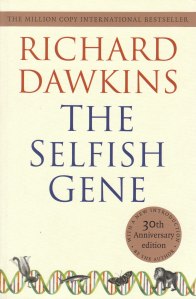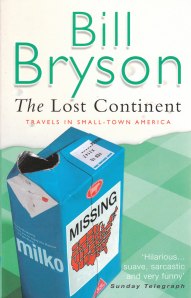Author: John Milton
Introduction Author: John Leonard
Publisher: Penguin
Dates Published: 1667
Pages: 453
In Paradise Lost Milton produced a poem of epic scale, conjuring up a vast, awe-inspiring cosmos and ranging across huge tracts of space and time. And yet, in putting a charismatic Satan and naked Adam and Eve at the centre of this story, he also created an intensely human tragedy on the Fall of Man. Written when Milton was in his fifties – blind, bitterly disappointed by the Restoration and briefly in danger of execution – Paradise Lost’s apparent ambivalence towards authority has led to intense debate about whether it manages to ‘justify the ways of God to men’ or exposes the cruelty of Christianity.
A few years ago I asked a respected English teacher her top ten books, or ‘desert island selection’, and ‘Paradise Lost’ happened to be amongst this list. I chose it as my first of her suggestions to read.
It would be all too easy, yet also unforgivable, to dismiss ‘Paradise Lost’ based of the bare bones of its plot. The tale of genesis and the fall of Adam and Eve – hasn’t the reader heard this somewhere before? But Milton not only renders this well known story with stunning freshness and beauty, he also leaps through time to describe the battle for heaven, the creation of the universe and the fate of Adam’s children.
‘Paradise Lost’ consists of twelve books. Each book thankfully has a short description of the events at the beginning called ‘The Argument’. This can be ignored if wished, but can also help as a guide through the elaborate verses. The language is truly difficult, the most difficult I have ever read, but the rewards for being patient and concentrating are great. It took me two years to read ‘Paradise Lost’. This is partly because I have the habit of reading about four books at once, but mostly because ‘Paradise Lost’ can not be absorbed properly without full concentration. Strangely enough, it is hard to find time for that kind of intensity (being tired from work or play, having people and animals harassing you constantly etc). There were times, especially during the four addresses to ‘the muse’, where I was tearing my hair out in confusion. Reading the notes provided is absolutely essential. But the language, once its complexities are understood, is luxurious and awe inspiring. My little novelist heart fluttered as Milton described Lucifer treading through Chaos and passing through the newly created universe to lurk at its edges.
Paradise Lost is not all dainty wording. The battle scenes between the angels and the usurpers are epic, hell is grizzly and Lucifer’s incestuous children, Sin and Death, are terrible to behold. All of these less saintly aspects of Paradise Lost are gleefully described with passionate detail by Milton (I suspect he may have had more fun and creative freedom in these passages).
Lucifer is daring, menacing and enthralling. Yet it’s his layering of humanity that creates such a grand character. At times he is doubtful and reflective, especially when spying the fair Eve in her garden. He is truly the centrepiece of this novel – the throbbing lifeblood. It is Milton’s attention to Lucifer’s plight and his convincing portrayal that caused readers to question whether the poet was on the devil’s side. God on the other hand is as expected – elusive, commanding and quite boring.
Surprisingly, Adam is quite admirable and a sympathetic character – which is odd for me given that I have never really liked his biblical equivalent. He seconds Lucifer as the most interesting character in the poem and his struggles, particularly his devotion for Eve that borders on idolising, are easy to feel a connection with. Eve is not as interesting. She is a beauty over brains feature (she even almost has a Narcissus moment when first created), but the audience still pities her after the fall.
The Fall of Man, and its effects on Adam and Eve, is truly and surprisingly tragic. I knew what was going to happen, yet it was still very sad to perceive. Watching Adam bitterly loathe Eve, who he had foolishly worshipped, is (for lack of a better word) tragic.
Does Milton ‘justify the ways of Gods to men’? Though it will take me far more study and reflection, and no doubt I will change my mind and change it again afterwards, from my initial reading it seems that Milton stirs the theological pot even more, rather than settling it down. His prose sometimes exults the ways of God, then turns things on their head by examining subjects such as omnipotence, predestination and free will with ambiguous and cleverly phrased passages. As mentioned in the above blurb, the work has created intense debate for centuries and oodles of critical theory essays (Milton is probably rolling around laughing in his grave at all the literary theorists wearing their fingers to nubs over ‘Paradise Lost’).
John Leonard’s introduction serves as a launch pad to the battling theories and controversies, though he does not delve too deep into them. Instead he chooses to speak of some of the more unsettling aspects of ‘Paradise Lost’ that scholars have often ignored (for instance the presence of an illusion to Jove in the first embrace between Adam and Eve).
Apparently a movie adaption of ‘Paradise Lost’ is currently in preproduction. I have often selfishly wished that someone would take on the challenge, yet now that it has been announced I feel somewhat doubtful that it will succeed in the slightest. Even if the special effects were perfect (yet how can a digitized version of heaven not come across as laughable?), I can’t see the grandeur and emotions being executed properly (and who will get the prized role of Lucifer, let alone fulfill it convincingly?)
‘Paradise Lost’ can enjoyed by Christians and atheists alike, but particularly by those interested in theology, religion and morality. For a Christian audience, the differences from The Bible’s version of events could offer another layer of interest and appreciation. Having (hypothetically) read The Bible may serve as an introduction to the language difficulty.
Even the highest praises will not do justice to the majesty of ‘Paradise Lost’. This is an epic poem that dares describe the indescribable – the creation of the Universe, Chaos, Hell, Heaven, Eden, Lucifer and even God – yet Milton does not fail, instead he renders them with breathtaking skill. Milton has reestablished my faith in the power of the written word – his poetry has almost otherworldly beauty. I have spent two years reading and worshipping this poem, and will probably spend the rest of my life trying to increase and refine my understanding of it. He inspires me with the potential his work creates, in the sense that mankind is capable of such art.
♥♥♥♥♥ – 5/5
Here is a sample for your reading pleasure (this passage describes Lucifer as he first lays in Hell after being cast out from Heaven):
Him the Almighty Power
Hurld headlong flaming from th’ Ethereal Skie
With hideous ruine and combustion down
To bottomless perdition, there to dwell
In Adamantine Chains and penal Fire,
Who durst defie th’ Omnipotent to Arms.
Nine times the Space that measures Day and Night
To mortal men, he with his horrid crew
Lay vanquisht, rowling in the fiery Gulfe
Confounded though immortal: But his doom
Reserv’dhim to more wrath; for now the thought
Both of lost happiness and lasting pain
Torments him; round he throws his baleful eyes
That witness’d huge affliction and dismay
Mixt with obdurate pride and stedfast hate:
At once as far as Angels kenn he views
The dismal Situation waste and wilde,
A Dungeon horrible, on all sides round
As one great Furnace flam’d, yet from those flames
No light, but rather darkness visible
Serv’d only to discover sights of woe,
Regions of sorrow, doleful shades, where peace
And rest can never dwell, hope never comes
That comes to all; but torture without end
Still urges, and a fiery Deluge, fed
With ever-burning Sulphur unconsum’d:
Such place Eternal Justice had prepar’d




Let’s just say that if this was a holy book, I might pick up religion again.
Pingback: 100 Artists See Satan « The Written Word